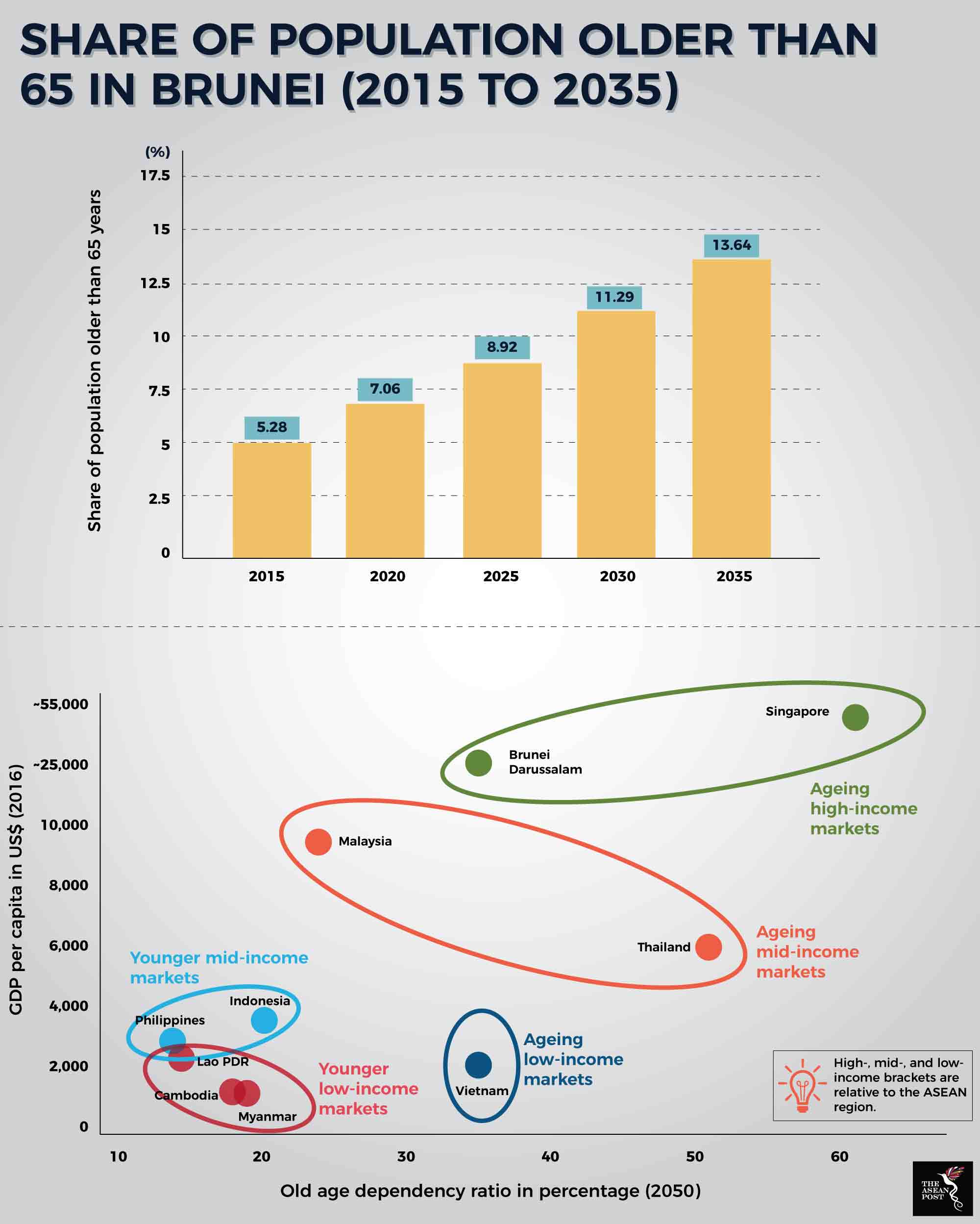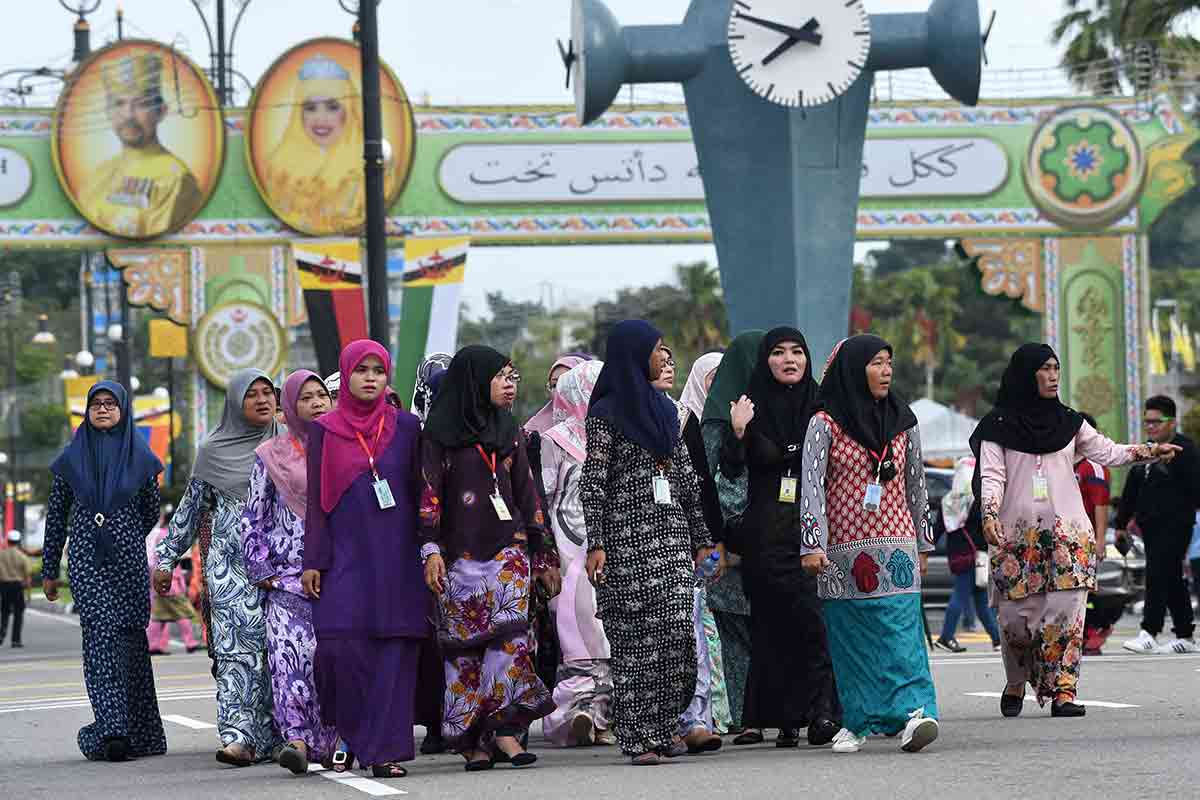While in most countries, an ageing population is a sign of potential dwindling economic productivity, Brunei paints a different picture to this conundrum.
Speaking at a forum titled ‘New Frontiers in Social Research on Ageing: Implications for Brunei Darussalam’, earlier this week, the country’s Minister of Culture, Youth and Sports, Awang Haji Aminuddin said that Brunei sees the elderly in the country as critical stakeholders towards future national development.
“We don’t paint a pessimistic picture of our ageing population, rather we see them as knowledgeable and experienced people working with us to realise the Brunei Vision 2035,” he said.
Brunei Vision 2035 or Wawasan Brunei 2035 outlines an ambitious future for Brunei. Its three main tenets are for Brunei to be recognised globally for having a quality of life that is among the top 10 in the world, a highly educated and skilled citizenry and a sustainable economy with an income per capita that is among the top 10 in the world.
Official statistics from the Department of Economic Planning and Development in 2016 show that those above the age of 65 represent close to six percent of the population – an increase of 0.1 percent from the previous year. Moreover, the elderly population in the sultanate is slated to increase by 7.8 percent in 2021 thus qualifying Brunei as an ageing nation where older people make up more than seven percent of the total population. By some estimates, the share of population older than 65 in Brunei is set to reach 13.64 percent by 2035.
Brunei’s ageing population is set to become one of the most significant social transformations for the sultanate in the 21st century. It would have spill over effects on financial markets, transportation, social welfare as well as healthcare.
According to the 2016 United Nations Development Program’s (UNDP) Asia-Pacific Regional Human Development report, Brunei is placed as a country which is “in the middle of transition.” The country is poised to witness a spike in its working-age population until 2020, after which, the increase will taper off and inch closer towards an ageing demography.

Source: Various sources
The government there however, remains undeterred.
The minister added that the establishment of community and activity centres by the government of Brunei has been key towards establishing a knowledge-based network between the young and the elderly. On top of that he alluded to future efforts by his ministry to support the ageing population and to help them develop a healthy and active lifestyle.
Regional trends
Nevertheless, the trend of an ageing demography is not foreign to the region. A 2017 report by Deloitte concluded that by 2030, Asia will be home to over 60 percent of individuals above the age of 65. By 2042, the population of over-65s in Asia is set to dwarf the populations of the Eurozone and North America combined.
This trend, however, does come with a myriad of business opportunities based on factors like rising life expectancies, increasing relative health care costs, and tightening of public sector budgets.
"Ageing populations may well be challenging to some nations, but they will also present some incredible business opportunities within those same nations. Our analysis shows that ageing will produce some very large winners at the industry level, particularly in Asia," said Chris Richardson, an economist with Deloitte Australia.
In Southeast Asia, although mostly home to a youthful population, its demographic clock continues to tick. According to Loke Wai Chiong, Deloitte Southeast Asia Healthcare Sector Leader and Executive Director at Deloitte Risk Advisory, ageing populations in the region will only spur demand for healthcare.
“Everything from diagnosis and drugs to devices, will have to evolve together with the shift in demographics. There is an ever-pressing need for a robust healthcare system to cope with the changing needs of patients,” he added.
Ageing populations have the potential to rewrite the business playbook around the globe. Moving forward, the public and private sectors must be quick to fully utilise the many new opportunities that come with an aging population - not just in healthcare but in secondary industries as well.
